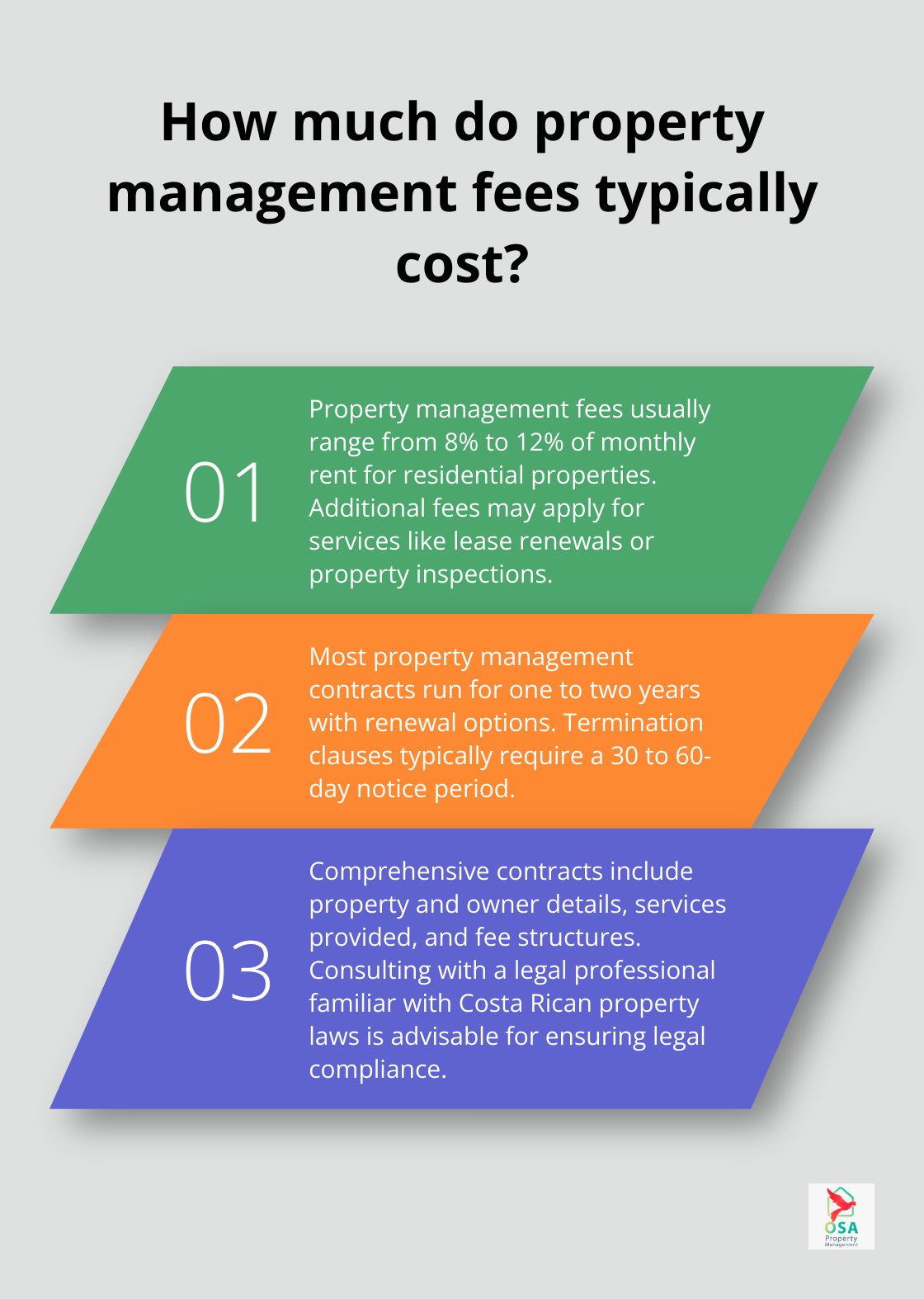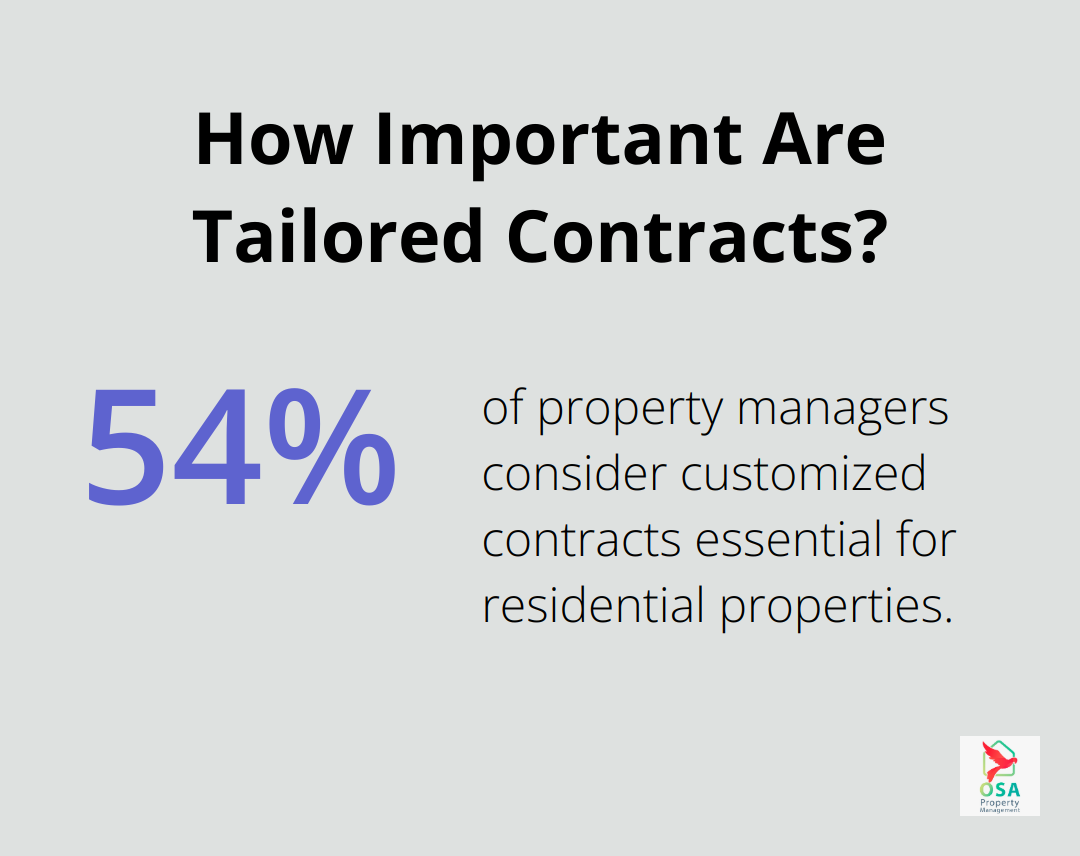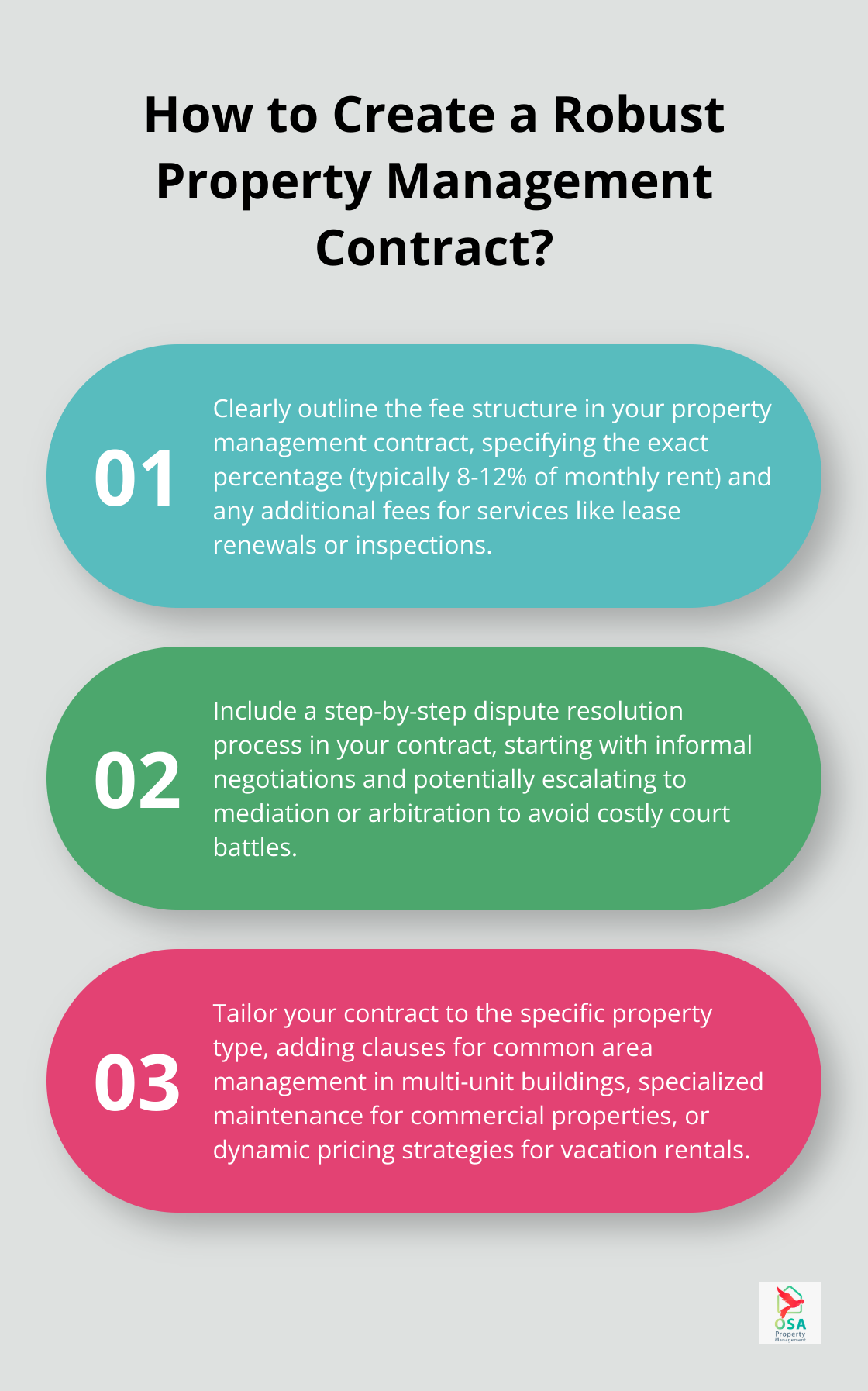A well-crafted property management contract agreement is the foundation of a successful partnership between property owners and managers. This essential document outlines the rights, responsibilities, and expectations of both parties.
At Osa Property Management, we understand the importance of creating comprehensive and legally sound contracts tailored to each unique property. In this guide, we’ll walk you through the key elements and considerations for developing an effective property management agreement.
What Should a Property Management Contract Include?
Property and Owner Details
A comprehensive property management contract must start with accurate property and owner information. This includes the full legal name of the property owner, contact details, and the complete address of the managed property. For Costa Rican properties, the contract should include the property’s registration number and any specific local identifiers.
Services and Responsibilities
The agreement should detail the scope of services the property manager will provide. This typically covers:
- Tenant screening
- Rent collection
- Maintenance coordination
- Financial reporting
Property management companies tailor their service offerings to match the unique needs of each property (whether it’s a vacation rental in Manuel Antonio or a long-term residential unit in Jaco).
Fee Structure and Payment Terms
Transparency in financial matters is paramount. The contract should clearly state the management fee structure, which often ranges from 8% to 12% of monthly rent for residential properties. Additional fees for services like lease renewals or property inspections must be explicitly outlined. Payment terms, including due dates and acceptable payment methods, must be specified to avoid any misunderstandings.
Agreement Duration and Termination Clauses
Most property management contracts run for one to two years, with options for renewal. However, it’s essential to include termination clauses that protect both parties. These should outline the conditions under which either party can end the agreement (typically requiring a 30 to 60-day notice period). For Costa Rican properties, it’s important to align these clauses with local regulations to ensure legal compliance.
Legal Considerations
While this guide provides a general framework, it’s always advisable to consult with a legal professional familiar with Costa Rican property laws. This ensures your contract is comprehensive and legally sound. A well-drafted agreement protects both the property owner and the management company, setting the stage for a successful partnership.

The next chapter will explore key clauses to include in your property management contract for enhanced legal protection.
Legal Safeguards in Property Management Contracts
Liability and Insurance Provisions
A property management contract must clearly define liability. The agreement should specify which party bears responsibility for various types of damages or losses. Property owners typically handle structural issues, while managers address day-to-day maintenance.

Insurance requirements demand explicit statements. Property owners should maintain adequate property insurance, and management companies need professional liability insurance. Property management companies should ensure that their policy includes sufficient general liability coverage, as well as coverage for property.
Effective Dispute Resolution
To avoid costly court battles, include a dispute resolution clause in your contract. This often involves a step-by-step process, starting with informal negotiations and potentially escalating to mediation or arbitration if necessary.
Protection of Sensitive Information
Confidentiality stands as a cornerstone in property management. A non-disclosure agreement (NDA) within the contract can protect sensitive information about the property, its finances, and its tenants. This holds particular importance in Costa Rica, where strict privacy laws can result in substantial fines for violations.
Compliance with Local Laws
Costa Rica enforces specific regulations governing property management, and your contract must reflect these. The country’s Condominium Property Law (Ley Reguladora de la Propiedad en Condominio) outlines specific requirements for managing multi-unit properties. Align your contract with these laws to prevent legal complications.
The next chapter will explore how to customize your property management contract for different types of properties, ensuring that your agreement addresses the unique needs of each property type.
Tailoring Property Management Contracts for Different Property Types
Residential Property Contracts
Single-family homes require contracts that focus on tenant screening, rent collection, and maintenance. Multi-unit buildings need additional clauses for common area management and unit turnover processes. In Costa Rica, the Condominium Property Law affects how these contracts are structured for apartment buildings or gated communities.

A study by the National Multifamily Housing Council found that 54% of property managers consider customized contracts essential for residential properties. This statistic highlights the importance of tailoring agreements to specific property types.
Commercial Property Considerations
Commercial property contracts often include more complex terms. They may cover issues like tenant mix management for retail spaces or specialized maintenance for industrial facilities. Office space contracts might include clauses about after-hours access or shared conference room usage.
The Building Owners and Managers Association International reports that commercial property management contracts are typically 20-30% longer than residential ones due to these additional complexities.
Vacation Rental Specifics
Short-term rental properties require unique contract elements. These might include clauses about dynamic pricing strategies, cleaning schedules between guests, and management of online listings. In Costa Rica’s popular tourist areas (like Manuel Antonio or Jaco), contracts often include provisions for concierge services and local tour bookings.
According to AirDNA, vacation rental properties managed by professional companies earn 20% more on average than those self-managed. This statistic underscores the value of a well-crafted management contract for these properties.
Costa Rican Property Nuances
Contracts for properties in Costa Rica must address specific local regulations. They should include clauses about obtaining and maintaining the necessary permits for short-term rentals, which vary by municipality. Contracts should also address how property taxes (which are relatively low in Costa Rica) will be handled and reported.
Vacation rentals in Manuel Antonio have an average occupancy rate of 56.30%, with peak seasons pushing this figure even higher. This emphasizes the importance of having a comprehensive, locally-tailored management contract in place.
Final Thoughts
A well-drafted property management contract agreement forms the cornerstone of a successful partnership between property owners and managers. This document outlines responsibilities and expectations while providing legal protection for all parties involved. Professional legal review of your agreement is an investment that pays dividends in the long run, especially given the nuances of Costa Rica’s property laws.
Osa Property Management understands the intricacies of creating tailored agreements for properties in Costa Rica. With experience managing properties in popular areas like Tarcoles, Jaco, Dominical, Manuel Antonio, Ojochal, and Uvita, we bring local knowledge to the table. Our team can help you develop a comprehensive property management contract agreement that addresses your specific needs.

We offer customized service packages that cover marketing, concierge services, renter relationships, bill payment, accounting, and tax compliance. Our insured team works with trusted maintenance companies in the market, ensuring your property remains in top condition. A well-crafted property management contract agreement sets the stage for a smooth, worry-free experience as a property owner in beautiful Costa Rica.

